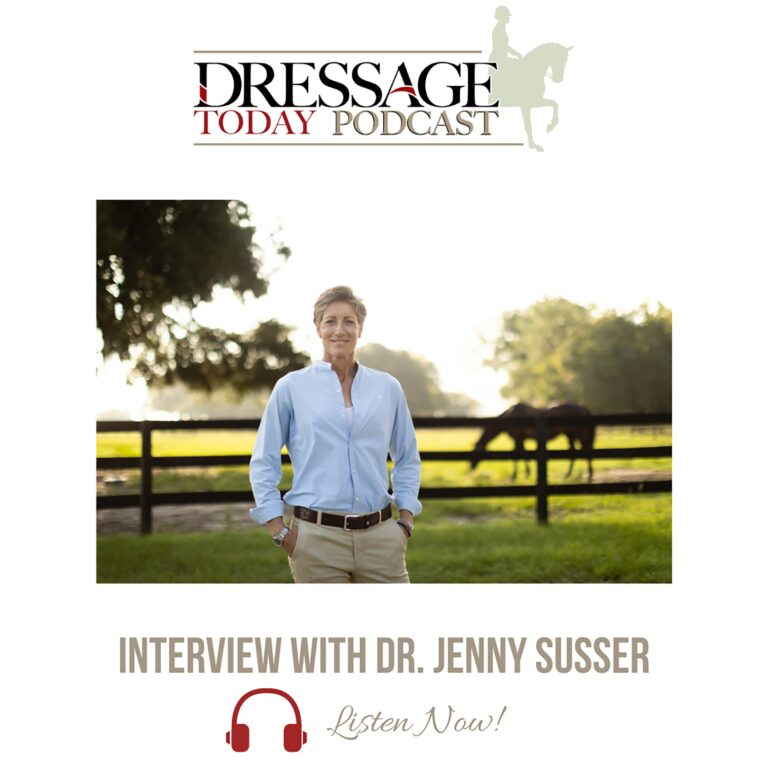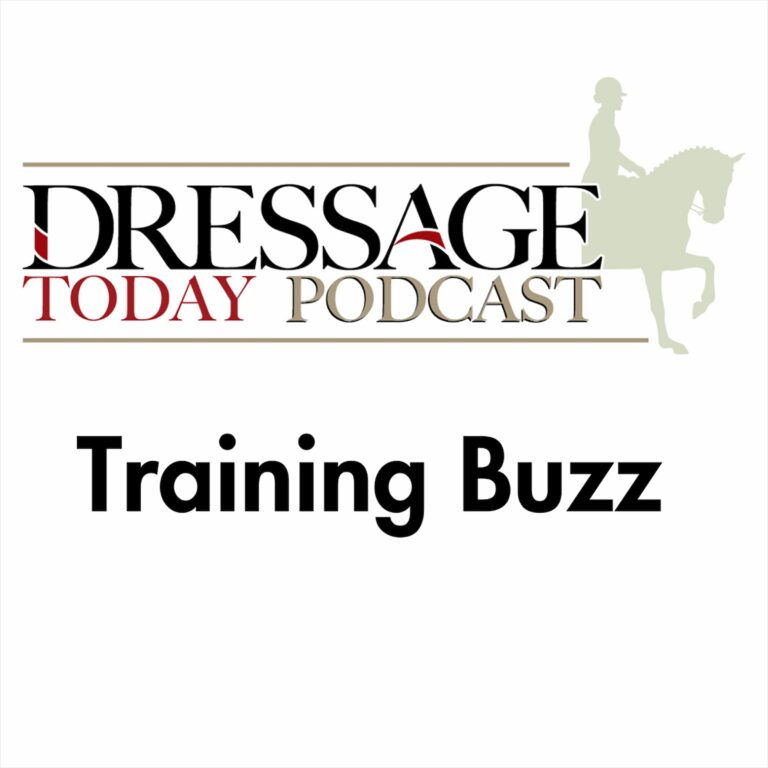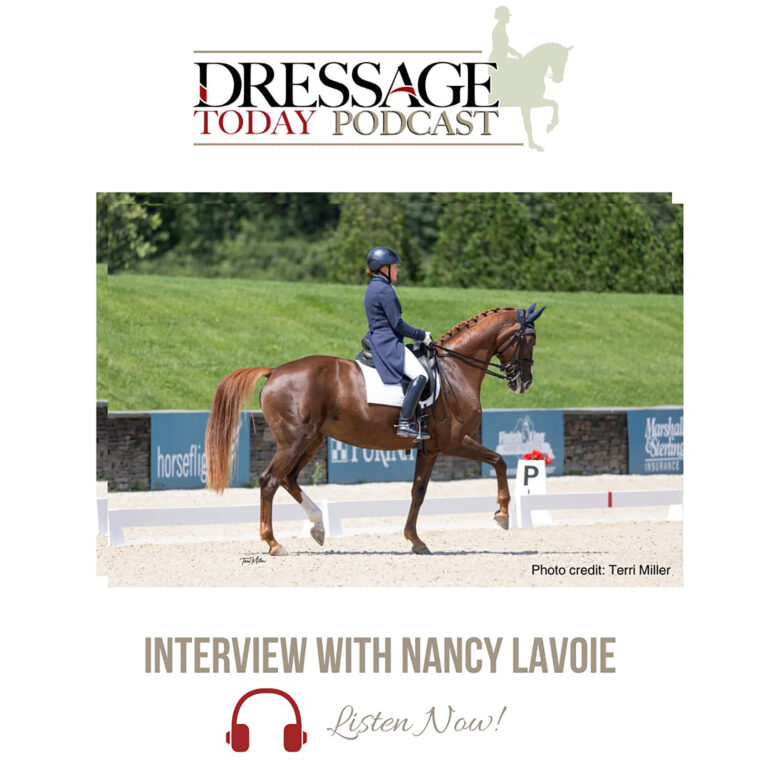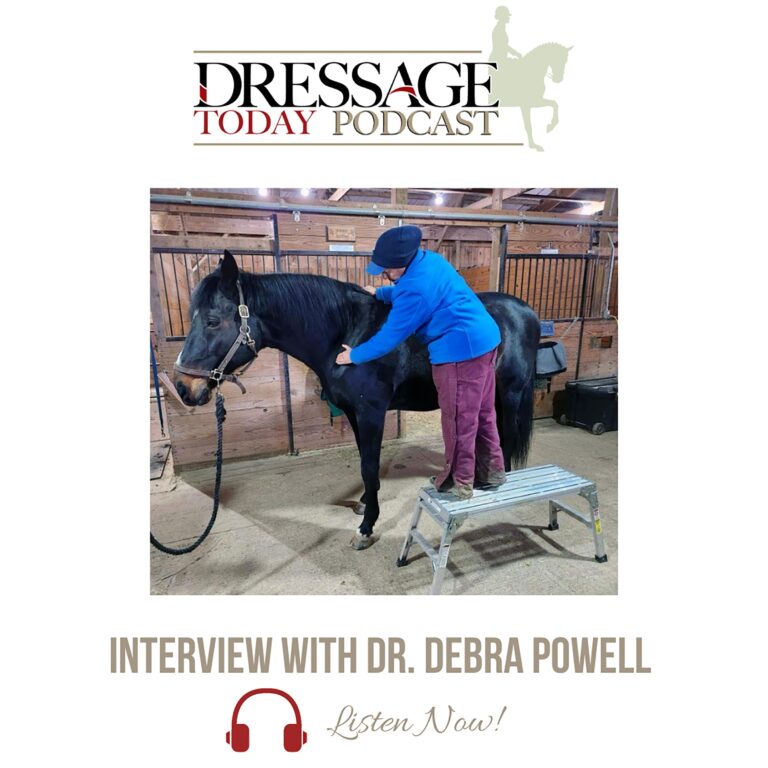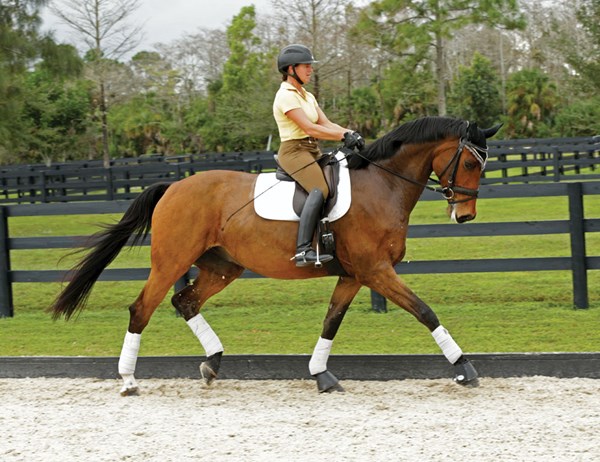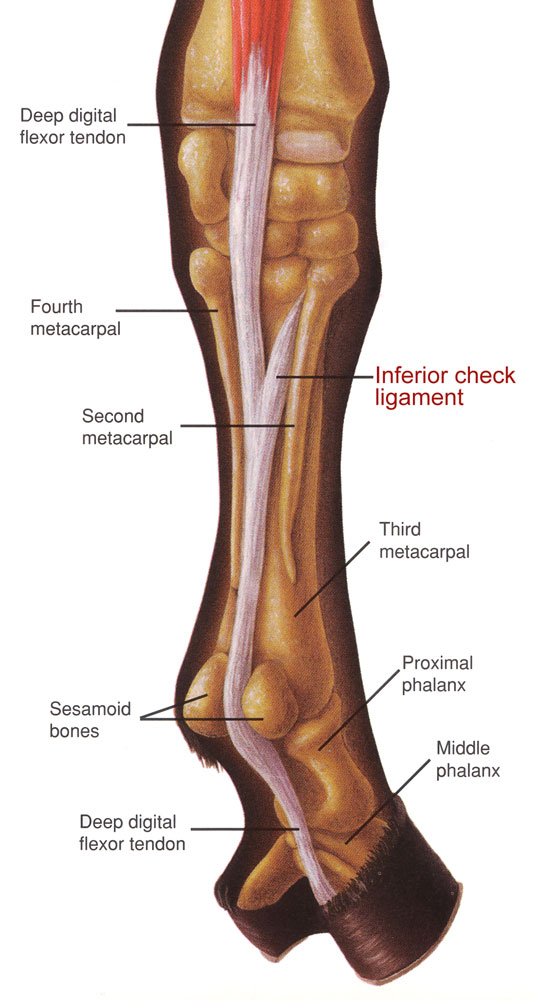Philesha Chandler has worked hard to get where she is today. From an 8-year-old girl in Kansas to a respected trainer and clinician based in Wellington, Florida, Chandler has broken barriers and become successful in the competitive dressage world.
PPractical Horseman: Who were your mentors or people who have influenced you over the years?

Philesha Chandler is a
successful teacher and trainer in Wellington, Florida.
Philesha Chandler: My first instructor, Lydia Wainwright, because she’s the one who started me out with my beginner lessons and really helped me gain my confidence and understanding of correct riding.
And then, of course, growing up at that point in time, Robert Dover was on basically every dressage Olympic team that I saw. I just thought that he was the best ever, and I idolized him.
PH: You were publicly announced as the winner of “The Search for America’s Next Equestrian Star: Dressage” in 2007. Can you tell us a little bit about your experience?
PC: I saw an article [Robert Dover] had put in a magazine saying that he was going to take two riders and have them come to his farm for a month of free training. Who would not jump on that opportunity? So I sent in my video to apply. From there, I kept being updated on how the show was progressing, and it was going to then be more than two riders, and then it was going to be more like an American Idol/The Apprentice type of show. Then from there, it came about that it was going to be filmed and put on TV. Anyone who knows me from a young kid knows that I was very shy as a child. I don’t know that had it been presented in the beginning about being on TV that I would have ever applied.
PH: What can you tell us about the horse that you brought with you to Robert?
PC: You know what? That was not my horse. I had a gray Trakehner named Marcel, and I owed the entire world to that horse. He made every single one of my dreams come true. I bought him as a Training Level horse, and I had to bring him along to the upper levels because we could not afford for me to have a fancy warmblood. … I took [him] to a clinic to get prepared to go on the TV show, and the clinician had me turn one too many pirouettes. He strained a suspensory ligament.
We thought he would be ready to go by the time the show started, and I actually hauled him down to Florida, but then the show was put on hold for a bit because of a hurricane that came through. As I worked him down here, I realized that he was not a hundred percent, and he owed me nothing.
I called Robert, and he said to find a horse. “You have time. I really want you to participate. Find a horse.” I said, “OK.”
It was USDF Bronze and Silver medalist Diane Rodich who put me in contact with Pan American Gold Medalist Carole Grant. I didn’t know at the time that Carole had trained Robert before, and I went to try two horses at her place. One was an amazing Grand Prix horse. The other one was Neon, and he had competed only to Fourth Level. I was talking to Carol about the choice, and yeah, you want to take the Grand Prix horse. Who doesn’t want to ride a Grand Prix horse with Robert?
But then they let you know that once you are kicked off the show, you still get to stay and train with Robert. You still got your daily lessons behind the scenes, so it wasn’t like you got kicked off and then you were gone. You weren’t on the TV show anymore, but you were still there, getting to ride your horse and do lessons. I thought, “What’s the better deal—for you to go around and learn how to push buttons on a made horse or to actually get to train a horse with Robert Dover?” So, I picked Neon … and took him to the show because in my mind, I thought I would be going home the first week so I might as well get
the experience.
PH: While you were working with Robert, he introduced you to Olymic show jumper Kent Farrington. You started to ride his jumpers on the flat in 2008. What was that like and how did that influence your dressage training?
PC: That was amazing. The jumpers are a different type of animal. Even though it wasn’t in my lane, it was still a great learning experience and wonderful to figure out how to get these horses to perform at their best. I had a lot of fun being a part of that team and getting to see some of the horses that I once rode and flatted come along and become great contenders for Kent. That was really cool to see.
PH: How has being a person of color affected your business as a professional? Has it changed over time?
PC: I am African American. In the beginning with trying to build my business, yes, it was hard. A lot of people thought you could not have experience with the horses as well as your counterpart because of the color of your skin. You weren’t born around the horses or been in the barn or done this or done that. I feel it’s a lot different now. It’s more accepting. People don’t doubt you as much because of the color of your skin.
Since the whole equality movement has taken place, it’s happened that people are being held accountable for their words and actions. In some ways, I feel it’s because a lot of people have been made aware of the differences and in other ways some people are just scared to make the mistake. They don’t want to be the odd one out, so they’re a bit more accepting. It also may be that people aren’t as vocal about how they may truly feel about a person of color being a trainer or at the show ring or things like that.
PH: Is the bias of color the only bias you see in horse sports or is there bias on gender, religion, financial standing, etc.?
PC: There’s definitely a bias as far as financial standing. That’s another ball game, and that even goes when you talk about people of color and the horses. Yes, there are people of color, but even within that, then the financial status comes along that separates even the people of color.
PH: What can we do to encourage more diversity in dressage?
PC: I don’t have the complete answer. I do feel as though having some of these younger riders who may not come from a background where they can afford the expensive horses still have access to great horses for them to show would be a great thing. Up-and-coming riders see people who look like them doing what they want to do.
I get contacted, and I mentor quite a few young men of color in the industry, and I love it. But it’s heartbreaking at times to see their struggles. They work for individuals who don’t understand where they’re coming from. So many times they have to go to work, and they’re working in rural places, but their employers aren’t thinking about the fact that they have a young man of color out in the middle of nowhere, and there’s not another person who looks like him. They don’t think what effect that has on him.
We’re taking the steps forward. We’re having these conversations, and hopefully, we’ll get somewhere with it. I hear of the different scholarships and things that are happening for our riders who are people of color, especially the young ones. I love hearing about that.
PH: What has gotten you through the tough times that all professionals in the industry face?
PC: My love of the horses. Even in the times when I think, This is too much. It’s overwhelming, the horses will be there. And on top of that, my grandmother. Anyone who knows me, knows my grandmother raised me, and we’re very close. Any time I would be like, “Let’s hang up the boots and go on about life,” she wouldn’t let me do that because she knew how much I loved it.
She would always say to me in those moments, “I know you’re tired, but do it for the next little black girl who comes along. Do it for the next one. You’re tired so don’t do it for you. Do it for her.” Sometimes that is what kept me going.
She would also let me know that I have to be better. “You have to carry yourself in a way because if you don’t, then they will assume that all little black girls act like this, and you may cut out the opportunity for the next little black girl who would come along.” That’s a big thing to carry, but I’m happy that I have the opportunity to do so, and that’s something that I can lean on to keep me going.
PH: Do you have any words of wisdom for young up-and-coming riders of color and as well as anyone trying to make it in this business?
PC: For me, I love anyone and everyone, regardless of whether they are people of color or not, whether they’re old or young, whether they’re an amateur or pro. To me, I try and do what I can to help whomever I can. And I tell those kids to just to keep going. Just keep going. Keep putting one foot in front of the other. Don’t give up. Chase your dreams. I tell so many young people that I’m in contract with just go for it. Go for it.
About Philesha Chandler

Philesha Chandler is the head trainer at Chandler Dressage Inc. in Wellington, Florida. She developed her love for dressage as a young rider. In addition to working with Dover and Farrington, she has worked with international dressage rider Arlene “Tuny” Page. Today, Chandler’s goal is to provide quality training, lessons and dressage horses to the dressage world.
Listen to Philesha Chandler’s Dressage Today Podcast episode on Apple Podcasts, Spotify or wherever you get your podcasts.
This article originally appeared in the Winter 2021 issue of Practical Horseman.


